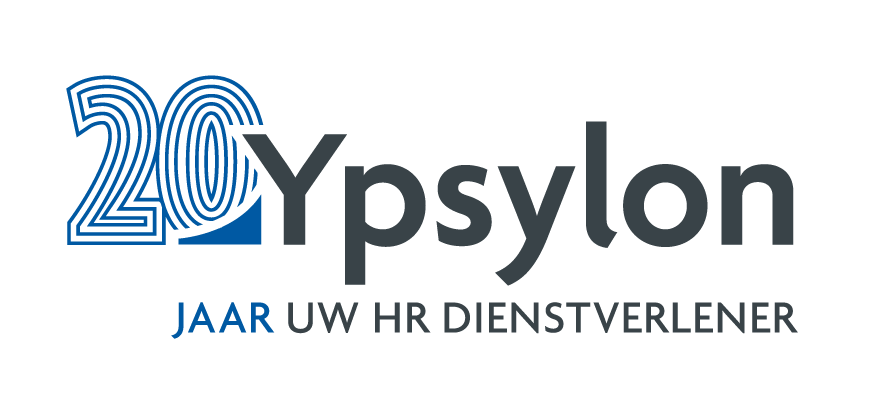Are you already convinced of the usefulness of taking assessments? Read on to find out what benefits it brings to both your organization and your employees.
In conversations with customers I always try to take stock of a number of things. What are the organizational objectives, what is the vision on HR and what are the biggest challenges in the coming period at both organizational and departmental level, as well as around various HR themes (employee development, leadership, recruitment, DE&I, vitality, etc). From my perspective as an organizational psychologist, it still strikes me that in many organizations little or no use is made of an assessment method. Below I set out a number of arguments that I often put forward to demonstrate the added value of a well-executed assessment.
1. Make new employees successful faster
One of our customers once said; by taking an assessment you gain a year of time savings. This HR manager meant to say that if you don't take an assessment it will take some time before you really get to know someone. You can imagine the 'damage' someone can do who should never have been hired. On the one hand I am talking about damage to your internal organization, on the other hand about damage to your customers and the reputation of the organization! When a good analysis is made at the gate, you as an employer know where someone's qualities and pitfalls lie and possible risk factors. You want to use these qualities as well as possible for your organization. You can then have an open and constructive conversation with the new employee about the points for attention. You let the employee take ownership for their own development. By knowing where someone's qualities lie and what that person needs to flourish, you ensure that you make someone successful for your organization faster!
2. Discover hidden talents and the potential of your employees
How often does it happen that someone is not empowered and that there is untapped potential. Many people themselves do not know where their qualities lie. Nowadays, the question of our customers is no longer just about making a statement about someone's suitability. Of course it is important to know whether someone currently has the right skills. However, this luxury is lacking in a labor market in which experienced people are scarce. On the other hand, you can also ask yourself whether you want to put someone in a new position who already fully masters the work. A certain room for development and challenge is necessary to keep people motivated and to offer them perspective. It often happens that employees bring unique qualities, which are often still hidden. It therefore pays off as an employer to invest in the potential of employees. A side effect is that employees feel taken seriously by their employer's investment, which in turn has a positive effect on the motivation and involvement of these employees.
3. Increasing equal opportunities through an objective assessment
Both in a selection process and when assessing employees who have been working for an organization for some time, to have an honest and objective decision making process within organizations is often a utopia. This is an important argument that I often make. Especially in a time of increasing diversity, the importance of equality and a fair approach is top of mind. Making decisions based solely on experience, an opinion or a gut feeling is no longer of this time. Of course, this does not mean that this will no longer happen - what is the situation in your organization? Particularly where heavier positions are concerned, there is still insufficient standardized decision-making based on objective data. This leads to incorrect decision-making and possible major (image) damage.
4. Invest in your valuable employees, work on retention
The current labor market and demographic developments mean that finding new employees is a major challenge in almost all sectors and that this trend will continue for some time to come. The current economic developments, including rising inflation, also stimulate the previous trend. This means that employers must do their best to keep employees happy. From the many assessments we have carried out recently, I have noticed how often it is new for people to participate in this. Some have done an online 'color test', but really taking the time for someone's personal development doesn't happen often. On the other hand, people are extremely grateful that time is taken for them in an objective manner. Being allowed to do an assessment is greatly appreciated and the results then offer many starting points for personal development on the one hand and being meaningful to the organization on the other.
5. Save costs
Last but not least - as an organization you naturally save a lot of costs if you know how to avoid hiring an unsuitable person. I have of course had to give negative advice several times and I honestly say that I don't like doing this. However, it happens that someone is unsuitable because this person does not have the right skills and the gap for develop it too big, or it is simply not there in terms of talent. As always, prevention is better than cure. In addition, it may happen that you do not consider someone suitable for a certain position, but that you can give them a place elsewhere within the organization.
Have I managed to convince you of the usefulness of using assessments with these five arguments? If you have other ideas about the use of assessments, I would like to hear them.
So are there any counterarguments?
Yes, of course there are counterarguments. Recently, I spoke to an HR manager of a large logistics organization who had a less positive experience with assessments. When this comes up in a conversation, I always notice that this still bothers people quite a bit. It's not easy to go through an assessment day, only to receive a negative assessment about something that you may have a completely different view of yourself.
In such cases I emphasize that we should indeed not expect that you can fully understand someone in a day and that this is of course a snapshot. The objective of an assessment, however, is always to get the most honest possible picture, in which the participant recognizes him of herself. The use of the right qualitative scientifically substantiated instruments and the qualities of the psychologist in question to enter into a conversation with the participant in a constructive manner should therefore not be underestimated.
In conclusion
Conducting an assessment is a profession, one that I have been practicing for several years now. I can only say that it is a beautiful profession, where you have the opportunity to really mean something to people. Giving good news and beautiful eye-openers is of course great. Giving less good news can sometimes be difficult and confrontational for the participant. However, less good news means an honest mirror, so that someone can improve themselves or make different choices. So either way, getting an honest and objective mirror is extremely valuable.
Do you want to know more about how assessments can contribute to your organization? Please contact Michael van den Berg or Edith van Dam.


